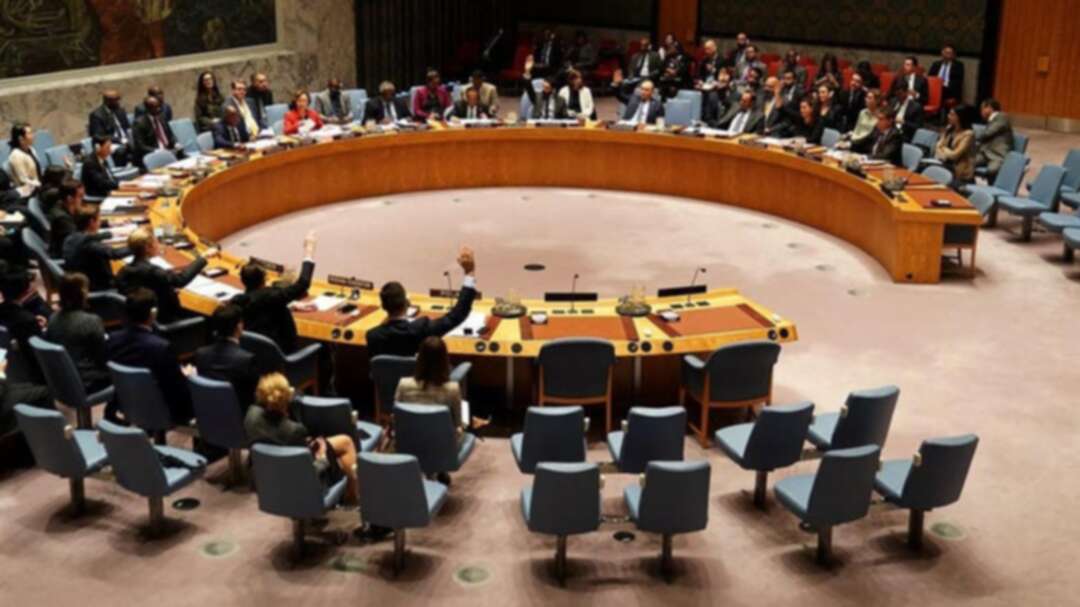-
UN: Houthis Interfering in Relief Operations in Yemen

The United Nations on Tuesday thanked Saudi Arabia and the United Arab Emirates for funding humanitarian operations in Yemen, reiterating that there are “several obstacles” facing relief work in the Houthi-controlled areas.
In a briefing on Yemen at the UN Security Council on Tuesday, the UN Special Envoy for Yemen Martin Griffiths praised in his statement the Saudi support for the medical air bridge to transfer critically ill Yemenis abroad for treatment.
Griffiths called all parties involved in the Yemeni conflict to make concessions to achieve unconditional peace.
“Peace won’t be dictated from a position of military dominance. Engagement in the UN process must be unconditional. It cannot be secondary to territorial gain, particularly when there is no military solution.”
Turning to another concern, Griffiths reminded the Council of the deteriorating SAFER oil tanker located off the coast of Yemen, warning that any rupture could spill over a million barrels of oil into the Red Sea.
“This threat…must be dealt with on a purely technical basis, without politicization,” he advised.
“The United Nations is committed, ready, and prepared to send objective, technical experts to undertake an assessment and initial repair, to be immediately followed by permanent arrangements to address the threat and make that vessel safe.”
On Sunday, Griffiths said that both sides of the conflict in Yemen agreed on a detailed plan to complete the first phase of a large-scale exchange of prisoners.
The announcement of the deal came after a seven-day meeting between rival sides of the Yemeni conflict in the Jordanian capital Amman.
For his part, Mark Lowcock, UN Under-Secretary-General for Humanitarian Affairs and Emergency Relief Coordinator, thanked on Tuesday Saudi Arabia for funding the humanitarian operations in Yemen.
Lowcock added that the rise in hostilities, as mentioned by the UN envoy, has displaced 35,000 people since January.
“This escalation, in addition to clashes in other places, has reversed the trend towards decreasing civilian casualties that we had seen in previous months,” he said, with 160 people killed or wounded nationwide in January.
“For months, I have called for a nationwide ceasefire. This call is even more urgent today when the violence, as Martin has said, is at a very real risk of spiralling out of control,” Lowcock said.
He pointed to serious obstacles hindering relief work in the Houthi-controlled areas.
The US ambassador to the UN Kelly Craft warned that Washington could halt its support to humanitarian agencies operating in Houthi-controlled areas in Yemen, if the Iranian-backed Houthis do not stop undermining relief distribution.
Craft expressed concern over the levy imposed by the Houthis on the currency in areas under their control.
Britain’s envoy to the UN called on the Yemeni government to put forward a plan to reassure donor countries about the financial situation in Yemen.
She also expressed concern over the restrictions imposed by the Houthis on the delivery of relief aid to the areas under their control.
Russia’s ambassador to the UN also expressed his country’s concern over the escalation of fighting in Yemen, urging all Yemeni sides to open a dialogue and make concessions to advance the peace process.
You May Also Like
Popular Posts
Caricature
BENEFIT Sponsors BuildHer...
- April 23, 2025
BENEFIT, the Kingdom’s innovator and leading company in Fintech and electronic financial transactions service, has sponsored the BuildHer CityHack 2025 Hackathon, a two-day event spearheaded by the College of Engineering and Technology at the Royal University for Women (RUW).
Aimed at secondary school students, the event brought together a distinguished group of academic professionals and technology experts to mentor and inspire young participants.
More than 100 high school students from across the Kingdom of Bahrain took part in the hackathon, which featured an intensive programme of training workshops and hands-on sessions. These activities were tailored to enhance participants’ critical thinking, collaborative problem-solving, and team-building capabilities, while also encouraging the development of practical and sustainable solutions to contemporary challenges using modern technological tools.
BENEFIT’s Chief Executive Mr. Abdulwahed AlJanahi, commented: “Our support for this educational hackathon reflects our long-term strategic vision to nurture the talents of emerging national youth and empower the next generation of accomplished female leaders in technology. By fostering creativity and innovation, we aim to contribute meaningfully to Bahrain’s comprehensive development goals and align with the aspirations outlined in the Kingdom’s Vision 2030—an ambition in which BENEFIT plays a central role.”
Professor Riyadh Yousif Hamzah, President of the Royal University for Women, commented: “This initiative reflects our commitment to advancing women in STEM fields. We're cultivating a generation of creative, solution-driven female leaders who will drive national development. Our partnership with BENEFIT exemplifies the powerful synergy between academia and private sector in supporting educational innovation.”
Hanan Abdulla Hasan, Senior Manager, PR & Communication at BENEFIT, said: “We are honoured to collaborate with RUW in supporting this remarkable technology-focused event. It highlights our commitment to social responsibility, and our ongoing efforts to enhance the digital and innovation capabilities of young Bahraini women and foster their ability to harness technological tools in the service of a smarter, more sustainable future.”
For his part, Dr. Humam ElAgha, Acting Dean of the College of Engineering and Technology at the University, said: “BuildHer CityHack 2025 embodies our hands-on approach to education. By tackling real-world problems through creative thinking and sustainable solutions, we're preparing women to thrive in the knowledge economy – a cornerstone of the University's vision.”
opinion
Report
ads
Newsletter
Subscribe to our mailing list to get the new updates!






















